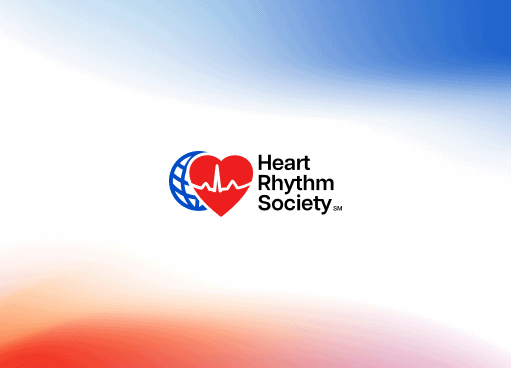May 7, 2024 – Since the public health emergency (PHE) due to the COVID-19 pandemic, efforts have been made to increase patient access to different sites of care. In the electrophysiology (EP) community, these efforts have included feasibility assessments regarding the performance of cardiac ablation procedures in the Ambulatory Surgical Center (ASC) setting. Recently, given favorable (albeit limited) clinical safety data in the ASC setting, interest has progressively increased.
The Centers for Medicare & Medicaid Services (CMS) currently does not reimburse for cardiac ablation procedures in the ASC setting. HRS, in close collaboration with the American College of Cardiology (ACC), has been engaged in researching ASC data on ablations with the intent to provide CMS with a consensus of evidence-based feedback. Close communication between our medical societies and CMS has continued in an effort to convince CMS to consider addition of the ablation codes to the ASC Covered Procedures List (CPL).
Background: ASC Covered Procedures List
Requests to add cardiac ablations to the ASC CPL were submitted to CMS by the Ambulatory Surgery Centers Association (ASCA). These codes were regrettably not accepted by CMS for 2023 and 2024. A request for 2025 has been submitted by ASCA and currently is under consideration. To establish that Medicare beneficiaries are protected, CMS welcomes additional evidence that a substantial number of these ablation procedures have been safely performed in the ASC setting on patients covered by other payers.
In July 2024, CMS will publish the Hospital Outpatient Prospective Payment System (OPPS) and ASC Payment System proposed rule that will clarify whether ablations have been proposed by CMS as an addition to the ASC CPL. At that time, HRS will submit comments to CMS for consideration. The final rule with the CMS decision about the ASC CPL for 2025 will be published in November 2024.
It is worth noting that rule-making changes typically take several years, and it is not uncommon for procedures to be submitted for inclusion in the ASC CPL multiple times before success is achieved, particularly for those procedures represented by codes that reside outside the CPT “surgery” range.
HRS/ACC Considerations and Findings
Members of a joint HRS/ACC Working Group are crafting a foundational document based upon patient considerations related to the safety of same day discharge (SDD) for ablations and including consideration for ablations performed in the ASC setting. This group has carefully reviewed published clinical data and engaged the Moran Company (a healthcare consulting group) to analyze historical Medicare fee-for-service claims data (which includes patient outcomes for each ablation procedure code). Since 2023, HRS and ACC have engaged with and informed CMS of this ongoing initiative, and CMS has acknowledged our efforts.
The voice of HRS members is also a paramount concern. Last year, HRS fielded a survey to inform advocacy efforts on behalf of our patients and our profession. The results of this survey were recently published in the Heart Rhythm Journal, with details available on HRSonline.org.
This groundwork has led to the following findings:
- Current available data for ablations (limited clinical trials and the claims data we have obtained) suggest similar outcomes in comparison with other cardiac procedures (PCI, CIED implants) that are already covered in the ASC CPL
- A majority of HRS members believe that at least some ablations for all arrhythmia types (SVT, AF, VT) can be safely performed in ASCs.
HRS Recommendation
HRS and ACC will continue to analyze relevant data. A final joint HRS/ACC recommendation will be formulated to prepare for the possibility that CMS includes ablations in the proposed Calendar Year (CY) 2025 ASC CPL when it is published in July of this year.
Ablations in ASCs, as in any setting, will require appropriate physician oversight and institutional guardrails. Ultimately, physicians will make the decision regarding whether an ASC setting is appropriate for a specific patient’s procedure. Processes for appropriate implementation of ablation in the ASC setting should focus on quality and safety, patient selection, and hospital transfer protocols. In addition, the possibility of recommending a registry of outcomes will be considered by HRS and ACC.
Similar to other cardiac procedures in ASCs, HRS believes that expert physician judgment, safe implementation guidelines, and appropriate patient selection will lead to desirable outcomes from ablation procedures and enhance patient satisfaction and access.
What’s Next?
HRS will continue its work with ACC in providing data and cohesive guidance on the safety of these procedures when performed in the ASC setting. HRS will submit formal comments to CMS, citing patient safety data and feedback from the profession.
HRS supports members that are working to improve efficacy and accessibility for all patients. We recognize the evolving EP landscape and will continue to lead efforts which provide reimbursement to safely perform appropriate ablation procedures in ASCs.
Available Resources
- HeartRhythm Journal:Heart Rhythm Society’s survey assessing same-day discharge after electrophysiology procedures and implementation in ambulatory surgical centers
- ASC Full Survey Data (May 24, 2023)
- ASC Full Survey Data – US Data Only (December 18, 2023)
- ASC Survey – U.S. Responses Analyzed by Region (December 18, 2023)
HRS Endorsed
- No
Topic
- Advocacy
- Regulatory Updates
Post Type
- Advocacy in Action
Related Posts

Advocacy in Action
HRA Tracking New Legislation for Site Neutrality
May 16, 2025

Advocacy in Action
HRA Supports New Bill to Stabilize Physician Reimbursement for 2026
May 16, 2025

Advocacy in Action
HRS Identifying Administrative Burdens for Removal as Medicare Requests Input & Proposes 2026 Hospital Inpatient Payment Increase
May 16, 2025